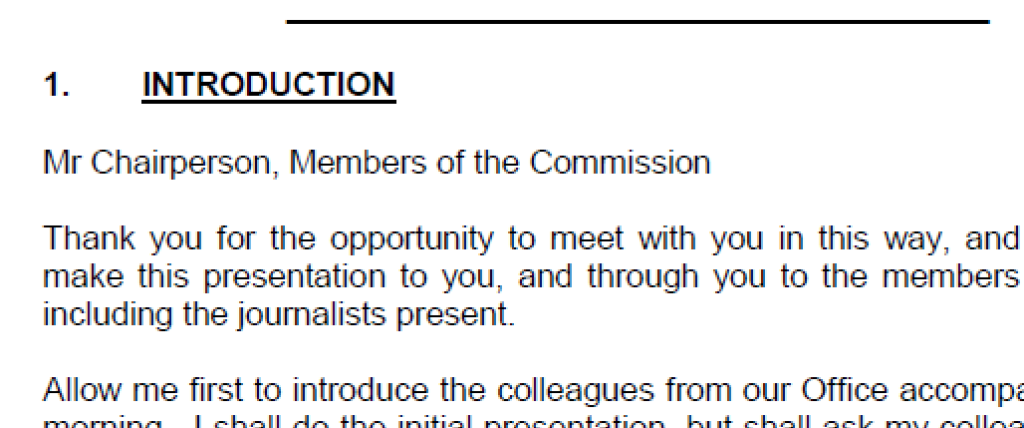On the eve of his inauguration a journalist asked Mandela how he would ensure that the ANC’s manifesto commitments were implemented: ‘Are you going to delegate authority to cabinet ministers and then let them push it or are you going to be in there yourself?’
I have to be interested in almost every detail but of course it is difficult to achieve that result where you have to look into the activities of every department in detail. It is sufficient to lay down a framework and all departments, all cabinet ministers, should work within that framework and your task is that of supervising and sometimes getting involved in the actual operations of a department depending on the importance of the national issue.93
Conventional as this reply was, the reference to the importance of national issues as a guide to his interventions was a key to understanding how things developed.
Systems to inform the President’s interventions and engagements developed within the office, in time to merge into more formal systems being built in Deputy President Mbeki’s office. Almost the day they arrived to take up their positions, the president called his senior advisers to a meeting and gave a directive to meet weekly to analyse developments. That didn’t happen but the seeds were sown. By the end of the year the legal and communication sections and Cabinet Secretariat were working together, and working with Deputy President Mbeki’s office, monitoring, analysing and briefing.
The first State of the Nation Address on 24 May, two weeks into Mandela’s presidency, marked the start of a cycle that consolidated over time. The speech drew from the ANC programme with a focus on projects that could be implemented sooner rather than later and which had an impact especially on the lives of the poor.
Then, given the nature of the transition and drawing from international experience, it was agreed that Mandela should report to the nation at the end of 100 days in office, what first steps had been taken to initiate the programmes of change. In July, Ministers were asked by Jakes Gerwel, as director-general of the president’s office, to report on progress in implementing the Presidential Lead Projects.

my task is that of supervising and sometimes getting involved…depending on the importance of the issue
The President will be reviewing the implementation of Reconstruction and Development projects in mid-August, among others, to establish progress or otherwise in introducing socio-economic changes during his 100 days in office.
All ministries/departments/regions are hereby requested to prepare brief reports outlining progress made thus far. This should include:
* projects being implemented;
* planned projects and time-frames for their launch;
* relevant legislative measures planned or being undertaken;
* any major problems experienced.
The reports, which should not be more than 3 pages long, should be submitted to the Director-General in the President’s Office not later than the 7th of August 1994.
Relevant ministries are also hereby reminded that in his State of the Nation Address, the President referred to specific projects whose implementation should start by the 1st of September, i.e., 100 days since the 24th of May when the Address was delivered.94
The reports from ministries then informed the president’s ‘Hundred Days’ speech in August when he opened the parliamentary debate on the President’s Budget Vote.95


This introduced a procedure, managed at first by the communications unit, and repeated at the end of each year as well as halfway through the first term. The analyses and briefings went to the president and the deputy president. Mandela read and absorbed them - although by the time they reached him he had usually been through the minister’s detailed reports – one year, on receiving the briefing on the year’s performance, he said he had read the reports and done his own analysis.
These processes gradually coalesced, along with the evolution of an Inter-Governmental Forum established in 1994 to bring ministers and provincial premiers together, into the creation in 1997 of the Coordination and Implementation Unit in the Deputy President’s Office. Delegated by the president, Deputy President Mbeki initiated the establishment of Cabinet Cluster Committees to group and integrate functions of government. However the less formal and visible systems continued to inform Mandela’s leadership, in which communication and building of social partnership played a signal role in mobilising society and government for implementation of the mandated programme.96
This combination of intense engagement with South African society and the international community, his wish to be on top of situations of interest in meticulous detail, and the limited capacity of a sparse office to sift issues, made for an impossible load. The focus narrowed especially to issues or events which he regarded as having the most urgent national importance, pre-eminently though not exclusively, two areas. One was peace and stability, without which the advances made could be reversed and reconstruction and development hampered. The other was the reintegration of South Africa into the international community with a particular focus on humanity’s search for peace and democracy.
Increasingly responsibilities were delegated to Deputy President Thabo Mbeki, including the chairing of Cabinet, though Mandela usually attended, listening and making comments. This required a careful balancing act. The constitution made no distinction between the two deputy presidents who in addition were – as a result of an NP negotiating position – ‘executive’ deputy presidents implying that they were not merely ceremonial. Part of the balancing was to assign the chairing of cabinet committees to both Deputy Presidents. Nevertheless, the asymmetry irritated de Klerk who felt it to be inconsistent with agreements made and diverging from the spirit of the constitution.97
Freed of much of the work of oversight and coordination, Mandela engaged more intensely with the imperatives of peace and stability and in support of South Africa’s international role. He attended meetings of the cabinet committee on security matters without fail,98 keeping a detailed eye on developments, and especially in the initial years spent much time engaging with the security forces and political players in parts of the country where violence continued. These issues were also at the heart of much of the tension in the Government of National Unity and gave rise to the few confrontational moments that did occur in the Cabinet and between Mandela and De Klerk.
After the NP withdrew from the GNU, Mandela gave higher profile to the shift of responsibilities to Thabo Mbeki, especially as he was preparing to step down as President of the ANC at its Conference in December 1997.
I have already pointed out I am a de jure president and that Thabo Mbeki is already a de facto president of the country, I am pushing everything to him and I'm a ceremonial president.99

The statement was part of his management of the ‘reverse transition’ which would see him leave government – though largely true, it masked the fact that there were still key aspects of government in which he continued to be closely involved. He was also trying to manage what had become an obsession among sections of South African media and in broader society as he was preparing to step down as ANC President and had more firmly reiterated his intention to retire as state President – ‘What will happen when Mandela goes!’